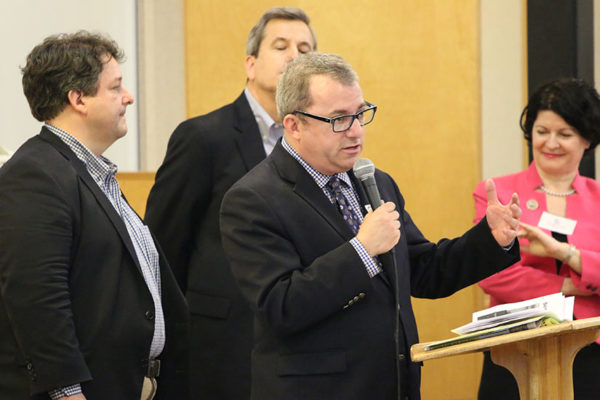State Senator Adam Ebbin celebrated a win on Sunday as the Virginia legislature approved the decriminalization of possession of small amounts of marijuana.
Under the new legislation, recreational marijuana will remain illegal, but the penalty is reduced to a $25 civil fine rather than the current penalty of up to 30 days in jail and a $500 fine. The decriminalization also includes hash and oil concentrates, of which it is currently a felony to possess, according to Virginia Mercury.
It’s been a long-running fight for Ebbin, who represents parts of Arlington and has frequently proposed decriminalization laws with limited success.
“This is going to make a tremendous difference in up to 30,000 Virginians lives who receive a criminal charge each year,” Ebbin told ARLnow. “They’ll no longer have the repercussions that come with a criminal charge. I think we’ll be in a much better place with a modest fine.”
Ebbin described decriminalization as a necessary step forward. Legalization is the eventual goal, and Ebbin’s legislation has faced some pushback from advocates like the ACLU who says it doesn’t go far enough.
Ebbin said a study of the impacts of decriminalization — which was also approved by the newly Democrat-controlled legislature — is necessary before the state can more broadly legalize marijuana.
“I want to make sure we get it right in terms of taxation, distribution, keeping it away from minors,” Ebbin said. “Those are all things to be considered as we come up with the structure. No state, to my knowledge, has ever legalized without decriminalizing first.”
The bill still has to be signed by Governor Ralph Northam, but if it is, Ebbin noted that decriminalization would take effect on July 1.
The move toward decriminalization was celebrated by some on Twitter, including Arlington Commonwealth Attorney Parisa Dehghani-Tafti, who was elected last fall with a platform that included ending prosecution of some marijuana possession cases.
Great news and a good first step. Thank you @AdamEbbin for your leadership.
Virginia lawmakers vote to decriminalize marijuana, set $25 civil penalty for possession – Virginia Mercury https://t.co/SgOHNYVB4P
— Parisa Dehghani-Tafti (@parisa4justice) March 8, 2020
Ebbin said the next steps are to work on the study and get more information to start on the path to legalization.
“[Then] we can start to work on the structure by which we might legalize or introduce legislation to legalize, but I don’t want to put the cart before the horse,” Ebbin said. “Nothing decriminalized until July 1, but I think it would put us in a good place.”
File photo


